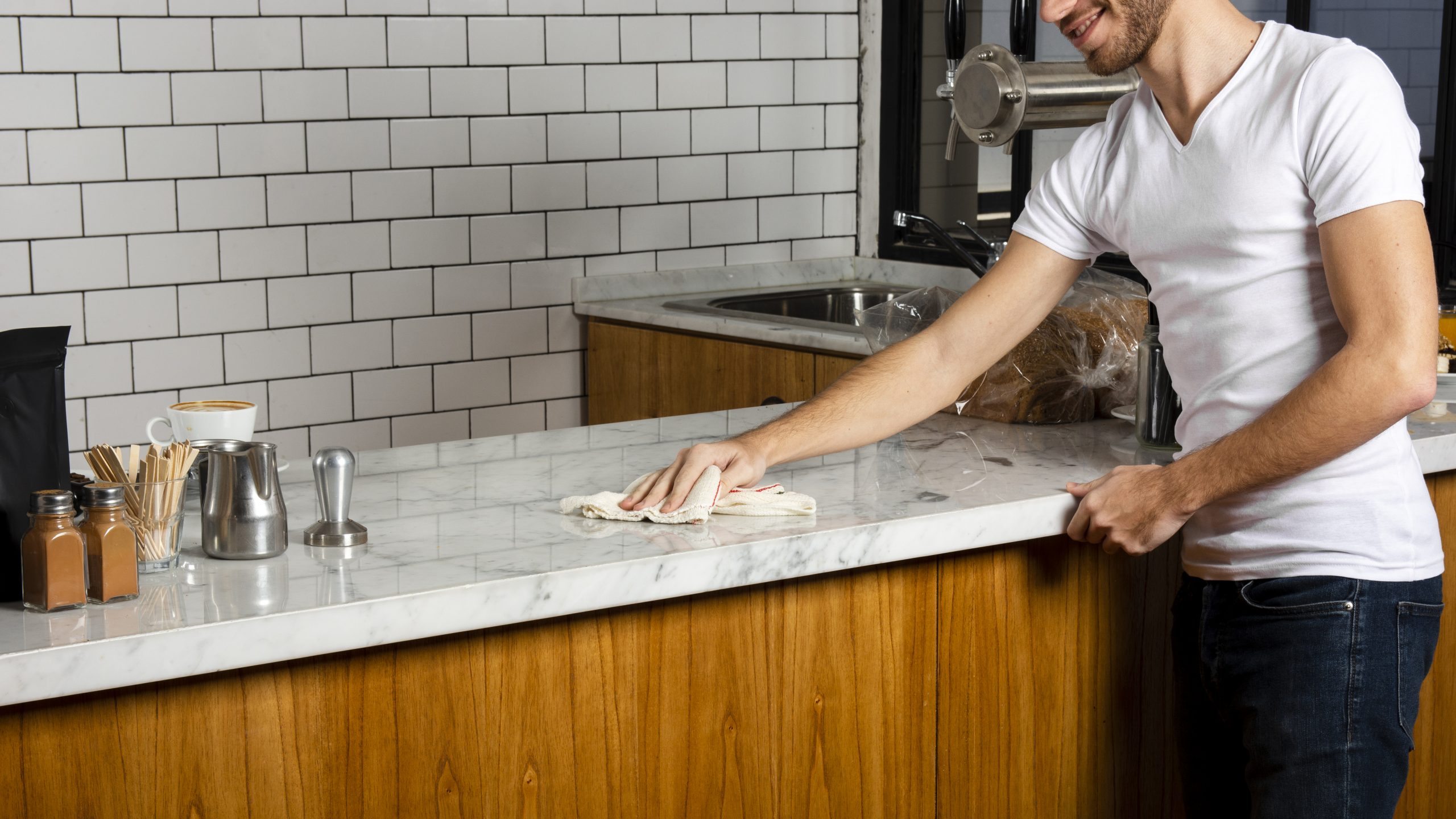
How to Seal Marble Countertops: A Complete Guide
Marble countertops exude elegance and sophistication, but to maintain their beauty for years to come, proper care is essential. One crucial aspect of marble care is sealing. In this comprehensive guide, we’ll delve into the intricacies of how to seal marble countertops to preserve their pristine appearance.
What is Marble Sealing?
Marble sealing involves applying a protective layer to the surface of the stone to safeguard it against stains, etching, and moisture infiltration. This process is indispensable for enhancing the longevity and resilience of marble countertops.
Why Should You Seal Marble Countertops?
Sealing marble countertops is imperative due to the stone’s porous nature. Just recall the things you use in your kitchen – red wine, tomatoes, ketch up, lemon juice! Unsealed marble countertops are more vulnerable to absorbing liquids, leading to unsightly stains and irreversible damage over time. Choosing the right marble sealing expert in Sydney is even more important. Get in touch with Geova Stone Solutions to seal your marble countertops now.
Types of Marble sealers
There are various types of sealers available for marble, each type offering distinct benefits and is suitable for different applications. The important types of marble sealers include
- Penetrating sealers
- Enhancing sealers
- Topical sealers
Marble Sealing Countertops Pre-preparation
Before embarking on the sealing process, it’s essential to prepare the marble surface adequately.
Cleaning Marble Surfaces
Begin by thoroughly cleaning the marble countertops using a pH-neutral cleaner and a soft cloth. Remove any dirt, grime, or residue to ensure a clean surface for sealing.
Repairing Any Damages
Inspect the marble countertops for any scratches, chips, or cracks. Addressing these issues before sealing is crucial to prevent them from worsening over time.
Selecting the Right Sealer
Choosing the appropriate sealer is paramount for achieving optimal results and long-lasting protection.
Choosing a Marble Sealer
There are several factors to consider like the type of marble, desired level of protection, and ease of application when selecting a sealer. Additionally, consult with a professional for personalized recommendations.
Common Mistakes to Avoid While Marble Sealing
Avoid these common pitfalls to ensure the effectiveness of the sealing process and prolong the lifespan of your marble countertops.
Using Improper Cleaning Agents
Avoid using acidic or abrasive cleaners on sealed marble countertops, as they can degrade the sealer and damage the surface of the stone.
Overlooking Sealing Edges
Pay special attention to sealing the edges and seams of marble countertops to prevent moisture infiltration and maintain uniform protection.
FAQs
How often should I seal marble countertops?
Marble countertops should be sealed every 6 to 12 months, depending on usage and environmental factors.
Can I seal marble myself?
Yes, sealing marble countertops is a DIY-friendly task that can be accomplished with the right materials and proper technique.
How long does marble sealer last?
The lifespan of marble sealer varies depending on the type of sealer used and environmental conditions, but it typically lasts 1 to 3 years.
Does sealing marble change its colour?
Sealing marble countertops can enhance the natural colour and veining of the stone without significantly altering its appearance.
Can I use any sealer for marble?
It’s essential to use a sealer specifically formulated for natural stone, as generic sealers may not provide adequate protection or compatibility.
How do I know if my marble needs sealing?
Perform a simple water test by placing a few drops of water on the surface of the marble. If the water beads up, the sealer is still effective. If it absorbs into the marble, it’s time to reseal.
Wrap Up
Sealing marble countertops is a fundamental aspect of marble care that enhances their beauty and longevity. By following the steps outlined in this guide and avoiding common mistakes, you can ensure that your marble countertops remain a stunning focal point in your home for years to come. Proper maintenance is key to preserving the integrity of sealed marble countertops over time. Maintain sealed marble countertops by regularly cleaning them with a mild, pH-neutral cleaner and avoiding abrasive scrubbers or harsh chemicals.